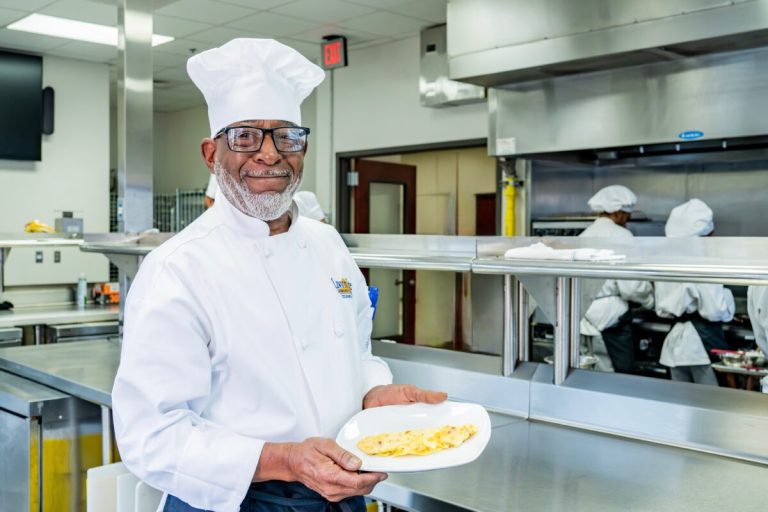Reviewed by: Michael Seale
How these 3 Auburn students are giving local farmers a voice through policy, economics + more
Reading time: 5 minutes
Sponsored

From food getting on the table to natural disasters affecting the land, the issues our local farmers confront every day are varied, difficult to navigate and often ignored by the general public.
That’s where these three Auburn students are filling the gap, gaining hands-on skills and policy leadership experience to advocate for farmers. Read on to learn more about how they will make an impact in Alabama and beyond.
Meet these 3 impressive students

First, let’s get to know a bit about these three Agricultural Business and Economics students:
Jonathan:
- Hometown: Auburn, AL
- Year: Senior
- Why Auburn: Jonathan grew up in Auburn, and his parents worked at the university, so he was already very involved. He considered looking elsewhere, but once he went on an official tour, he realized how many opportunities there were to meet new people and get involved on campus.
Jackson:
- Hometown: Arcadia, FL
- Year: Junior
- Why Auburn: Living in South Florida, Jackson didn’t know much about Auburn outside of The Kick Six, but he decided to visit a friend from his FFA chapter who was enrolled at Auburn. When he stepped on campus, it felt like home to him.
Lee:
- Hometown: Lacey Springs, AL
- Year: Senior
- Why Auburn: Lee got put into an agriculture elective in high school by mistake but ended up loving it. His teacher was an Auburn College of Agriculture alumnus and encouraged him to look into the university.
Q: What inspired you to major in Agricultural Business + Economics?

Jonathan:
“I started out working on the fisheries unit at Auburn and really enjoyed that, so I knew I wanted to study something hands-on. At the same time, I launched my own business selling clothes, and I wanted to explore a major that was business-focused.”
Jackson:
“Agriculture came on my radar after my brother decided to show a pig in the county fair in seventh grade.
I joined my high school FFA program, became Vice President and showed some animals. Eventually, I got into extemporaneous speaking and covered topics like red tide disease and pollution. I ended up finishing third in the state.
Also, in 2022, my hometown was directly hit by a hurricane that wiped out cattle herds and crops. It opened my eyes to the importance of agricultural policy and government procedures.”
Lee:
“My family doesn’t farm, but I grew up working in chicken houses at my neighbors’ farms, which helped me develop an interest in agriculture. When I took the agriculture class my sophomore year of high school, I started to learn about policy and legislation and decided that was the path I wanted to take.”
Q: What’s a common misconception about your major or agriculture in general?

Jonathan:
“A lot of my friends think my major is just about growing plants and food, but the industry is so complex, and there are so many niches within it. I really enjoy learning about sustainable solutions and trying to solve problems for producers.”
Jackson:
“A lot of people don’t realize how smart farmers and agriculturalists are. They are some of the most diversifying people you will meet and know how to take vital measures like offsetting the cost of oranges with cattle.”
Lee:
“A lot of people don’t realize how much you need advocacy within the government for agriculture. With our population growing, we need more clothes, food and water, and farmers play a vital role in the production of those items.
Advocating for small farms is really important to me. With the price of land and labor, most small farms struggle, but I hope to advocate for those traditional family farms and not let all of them become part of large corporations.”
Q: What has been your favorite part about the AG Econ program?

Jonathan:
“Agriculture touches every person in one way or another, whether that be the clothes you wear or the food you eat. I’ve enjoyed learning about how many opportunities there are in the industry. The College of Agriculture offers a lot of mentoring opportunties, and they want to see future graduates succeed.”
Jackson:
“I really feel like the agribusiness major has turned me into a well-rounded person. It’s taught me every facet of the industry. I get to learn about policy but also the boots on the ground, hands in the dirt work that fuels that policy.”
Lee:
“With how broad the major is, I get to take classes in economics, accounting, agricultural policy, trade, finance and management. It really gives you a well-rounded understanding and prepares you for various career paths.”
Q: What are your career goals?

Jonathan:
“I want to pursue a career in agricultural policy, so I am looking at two options for my next step. Since I enjoyed working at the Alabama Farmers Federation this summer, I am about to take the LSAT. I’m also considering a master’s in Agricultural Economics.”
Jackson:
“I’m interested in working in any facet of the agricultural industry to gain experience and eventually pursue a career with a farm bureau in their governmental affairs department.”
Lee:
“I’m considering going to law school or doing a master’s in Agricultural Economics while I start working. I want to lobby for the betterment of agriculture, perhaps at the state level, federal level or in another sector.”
Learn more about the Agricultural Business and Economics program in Auburn’s College of Agriculture.
Sponsored by:





